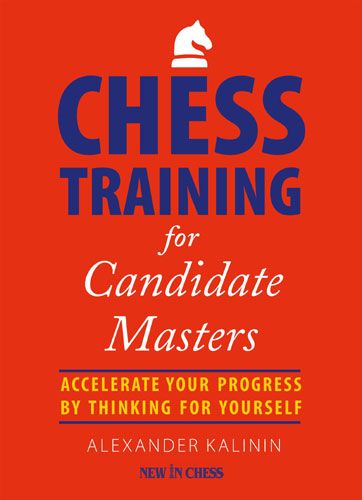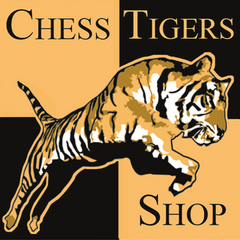
Kalinin: Chess Training for Candidate Masters
Autor: Kalinin, Alexander
Verlag: New in Chess
Erscheinungsjahr: 2017
Sprache: English
Buchumschlag: book
Seiten: 208
Accelerate Your Progress by Thinking for Yourself
Today's young players have benefited greatly from working with chess computers. There is little doubt that advanced software and electronic training programs have significantly contributed to the rise of the standards of play.
But there is a negative side to this. Many young chess players see the computer as the ultimate answer to nearly everything. They think that computer analysis is the best and the fastest way to find the truth in any position on the board.
As a result, many of those players have gradually stopped thinking and analyzing for themselves.
Prominent Russian chess trainer Alexander Kalinin knows that what you need in order to make real progress in chess is not more computer input, but increased understanding.
To fully digest all available data and to discover the ultimate secrets of chess you must dislodge your decision making from your addiction to the computer and (re)develop the habit of using your own brain.
Kalinin helps players seeking the master title by showing how concrete knowledge leads to improved decisions at the board.
A master must understand the importance of aesthetics, knows how to curb the influence of the computer, accepts that the classical heritage is essential in his development, learns the importance of human interaction in achieving analytical mastery and grasps how to spot and fight his weaknesses.
Kalinin provides candidate masters with a wealth of study and training material. The vast majority of that material has never been published before. Kalinin reveals the mistakes he himself made on his road to the master title.
Most examples are taken from games of players who themselves are on the road to chess mastery.
Alexander Kalinin is an International Grandmaster from Russia and a distinguished chess trainer. He coached Daniel Naroditsky (USA) to win the World Youth Championship, and worked successfully with Russian and European Women's Champion Valentina Gunina.
Contents
Foreword
Introduction - How to train the masters of the future
Part 1 - General questions of chess pedagogy
Chapter 1 - Historical overview
Chapter 2 - Man and computer
Part 2 - How chess players are formed
Chapter 3 - The aesthetics of chess
Chapter 4 - The benefits of solving endgame studies
Chapter 5 - Analytical exercises
Chapter 6 - The classical heritage
Chapter 7 - Personal influences
Chapter 8 - Lessons at the chessboard
Chapter 9 - The fight against weaknesses
Instead of an epilogue
Index of games, fragments and studies
208 pages, 2017, paperback, English.
Leseprobe
Sichere Zahlungsoptionen bei uns im Shop
-
Versand mit DHL und DPD
-
Versandkostenfrei in DE ab €50
-
14 Tage Rückgaberecht













